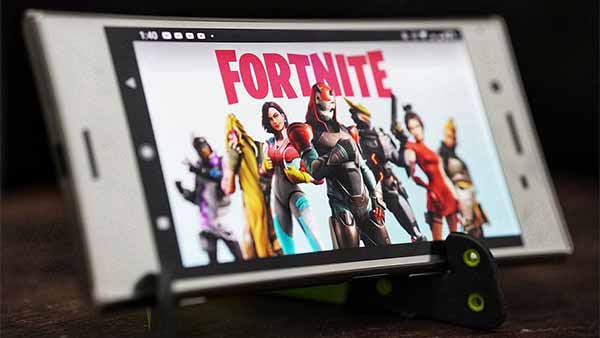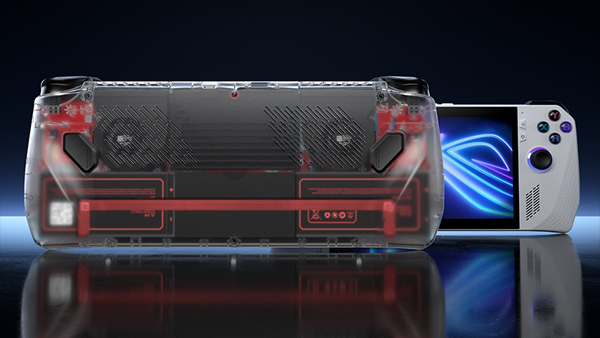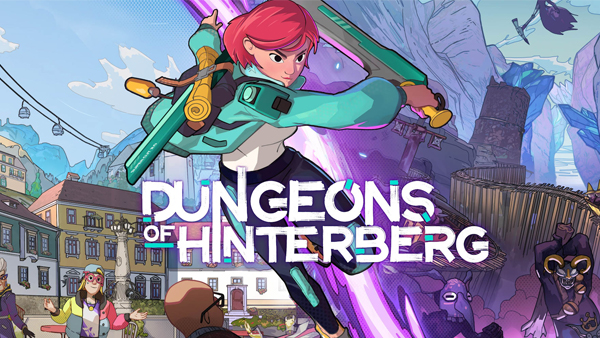A Future In Smartphone Gaming
A Future In Smartphone Gaming
Mobile devices have changed the way we conduct our day to day for the better part of two decades, and in the last few years the modern tech in our smartphones has changed that even more - so much so that oftentimes a lot of newer platforms are designed solely for use on smartphones with any desktop or laptop use being an afterthought - this is especially true for websites, as over 80% browse via their smartphones. With this change, and with the strength of hardware in our mobile devices getting stronger each year, we’re moving further away from the primary use of mobile devices being for standard communication such as calls and text, and more toward gaming and content consumption being the main use.

In the late 90’s and early noughties, the handheld console market was booming as Nintendo led the way with the Gameboy - videogames as a whole were performing extremely well as hardware developments allowed studios to push the games further, and by cutting back on the bigger entry price of the console and by introducing a portal manner in which to play them, they really took off. The trend continued for two decades too - as others such as Sony tried to get a foothold, Nintendo continued to really lead the way right up until today with their modern offering in the Switch, which remains as one of the fastest selling consoles of all time, although not capturing as much of a market as it once did due to the increase in mobile gaming.
A similar path had also been shown with modern day consoles, and although early efforts from Sega and Nintendo really paved the way, it wasn’t until both Microsoft and Sony introduced the Xbox and PlayStation that the console wars really began - something continuing even now with the newest releases set to come this holiday season and the exclusive games that are released alongside them to capture some more loyalty to one brand or the other. The outlier here being PC gaming, and the recent huge success that has been found in esports on this platform - but we’re seeing a big change happening, and although PC gaming continues to grow from strength to strength and console gaming holds its place as a staple, our gaming habits are quickly adapting to us and our habits.
All of the above have the same issue - the barrier to entry will always be there. The cost of consoles remains quite high, and the cost of games on top of that will always be a tough spot for some, PC gaming has always been more of an enthusiast way to go too although this is changing a little - but mobile gaming has removed that barrier for entry, as modern day smartphones have changed enough so that the hardware in them is relatively unchanging from company to company, they’re all on even footing with similar pricing and similar specifications, removing the biggest entry barrier. With this, our increasing use of our mobile devices in our day to day really carved the way for them to dominate the market - handheld consoles had slowly become replaced as games and apps specifically developed for smartphones, especially for casino and puzzle based games, small arcade options that can be played for ten minutes here and there without needing much concentration - as well as content for video streaming platforms as the likes of Netflix and Prime really took hold. And this is where we see the future in smartphone gaming as a whole - although there are huge libraries of the more arcade styled, simple and attention grabbing games, the real change is starting to be seen with modern, more complicated titles take their place - the likes of Fortnite and PUBG were able to move from the PC platform to our smartphones and capture a very large audience too.
We’re seeing increasing innovation in our smartphones too, packing as much hardware as possible into small slim bodies and pushing that hardware as far as it will go, newer screen technology has given us exciting nods toward what may seem like a gimmick in the Samsung Fold may become something more of a norm in the future and the efforts to push battery life so that our content habits can be sustained for longer periods of time - 5G is also just around the corner to increase the connectivity and the amount of data transfer capable.
One thing that does seem to be certain however is that the future of gaming is within the mobile market - and the figures definitely support that too. The barrier of entry being relatively low is one that has been mentioned already, but it’s difficult to look over the social aspect of mobile gaming and how the connectivity to our social media is ingrained within these mobile games - showing our friends how well we’re doing, sharing progress to gain a small boost within the game, or even recommending the game to a friend so you both gain some ingame item or currency. The next step will be for big publishers to continue creating port versions of the game from whichever initial platform they were to be released on and have them move on to the app marketplaces, as this doesn’t seem like it’s all that far away as previously mentioned larger published games have performed extremely well.
Mobile apps are dominating, screen time on our mobile devices is only increasing and the demographic for those using this content is changing - the younger male teen crowd no longer make up a majority in the mobile gaming market which only further extends the options for these games to be pushed forward. Support is coming from everywhere, investors and governments alike are getting involved to get their piece of the action - mobile gaming is on the rise and it’s here to stay - it’s possible within the next decade we’ll see the market replace the more traditional forms in the way of consoles, and with the evolution of hyper-casual games, perhaps usher in a new era of how games are developed in general.

Japanese Drift Master Series Welcomes Subaru to Its High-Octane Lineup
Subaru takes Pole Position in Japanese Drift Master, becoming the first officially licensed Car Brand. JDM: Japanese Drift Master is coming to PC via Steam, Epic Games Store...

JSAUX Releases New Transparent ROG Ally Backplate for Enhanced Cooling!
JSAUX’s ROG Ally transparent heat sink backplate is now available for $39.99. The ROG Ally’s transparent back cover series features new technology to help with heat...

JDM: Japanese Drift Master Takes on 2024 with a Steam, Epic, and GoG Release!
Drift racing game JDM: Japanese Drift Master will be released for PC via Steam, Epic Games Store and GOG later this year. Discover the beginning of the story of the titular...














